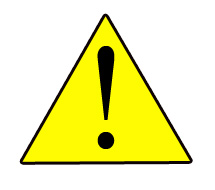Revenue Cycles and Hospital Management
Often times one might not associate revenue cycles with hospitals, because hospitals are many times understaffed and lacking resources, thus making revenue cycle management difficult.
But this is constantly changing and hospitals are becoming, and have become, more efficient.
Yes, hospitals are places where patients receive treatment - pretty clear definition. But, when it comes to managing hospitals, one thing always arises and is a key component to most, if not all, decisions made when operating hospitals.
With the new federal mandates, comes more and more EHR implementations, and coming from this is meaningful use and ICD-10 and their associated changes. Some see these changes as burdensome, but with the help of medical scribes, these new changes can actually lead to more streamlining and efficiency, and to better doctor patient interaction.
Despite some hospitals viewing EHRs and electronic charting in general as a hassle, some hospitals are actually profiting more from these changes. Revenue cycle management and financial metrics are important to hospital administrators, and though new changes may lead to new organization and management of health care, as seen in analysis, using EHRs and medical scribes can lead to growing profits. EHRs can clearly be productivity-boosting and especially so when viewing EHR through the lens of patient coordination.
For more info on this click here to see an article by EHR Intelligence.


